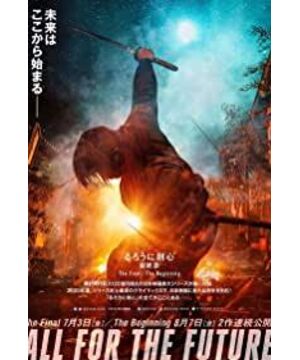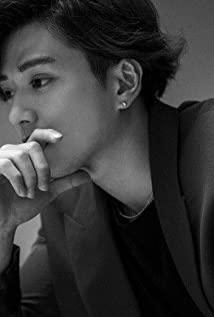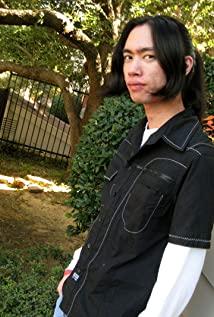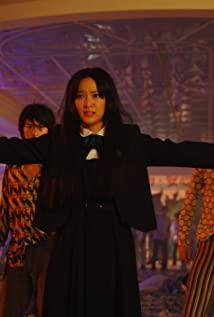Whether it is an action movie or a historical movie, it should be said that it is an old routine. Just like the sword that Xue Daiyuan's sister blocked for Kenshin, anyone who has seen it as a routine understands it well. However, this film gives people a strange illusion of chemical reaction of time. Time and space seem to be recombining in the space of this image, and the author instinctively guessed that as a Chinese audience and as a Japanese audience, they might watch it. feelings are decidedly different.
It should be said that this is an advantage of Japanese film and television. After all, they not only have a good film tradition but also have a good comic tradition. Both of these traditions enjoy a good reputation in the world. Combining is a natural thing. Therefore, when Yukiyo Yuki comes on stage, you can see that his martial arts movements are different. Kenshin actually retains the traditional Japanese martial arts discussion, although the policeman also has some modern style, the calmness of the cigarette, completely A feeling of being unaccustomed to, all of which will have a violent impact on the audience's perception.
Yukino Yuki wears sunglasses, dyes yellow hair, and wears a robe. The film chooses to set a turning point in Japan's Meiji Restoration. There are some reflections on the transition from classical to modern. This problem is particularly reflected in Japan to stay in the original Confucian system. , or the issue of dragging Asia into Europe. Therefore, the hatred between Xue Daiyuan and Jianxin is not so much because of her sister's death, it is better to say that they are people from two different camps. aside.
Xue Daiyuan not only impacted the beginning of the film with a "two-dimensional" shape, but its martial arts action design is also refreshing. The elegance of gliding in the new century and the classical movements of Kenshin form a huge martial arts appreciation. Of course, what's more important is that Xue Daiyuan also has an important identity. He is now the boss of the Shanghai gangster, which means that he is now the representative of China, although he is a Japanese, although he seems to have traveled from the future. people, but at the moment China represents the conservative side.
What's even more strange is that we may be able to feel a slight contrast. Although Kenshin represents the reformist faction, his gestures are the kind of Bushido spirit in the bones of Japan, whether it is murderous or repentant, including the kind of Japanese uniqueness contained in Kenshin's heart. The aesthetics of destruction, that is to say, you can't see any changes in the times from Jian Xin, but Jian Xin has an abstract "repentance" mentality. After killing so many people, how can he still be a The protagonist of the front, this is a suspended question. This is also an important sign of the film itself, that is, there is a cross scar on Kenshin's face.
If it is said that seeing white wedding dresses on the street has some appreciation for Western culture, then Kenshin, as a knife and axe hand, actually understands the cruelty behind this development, and he is actually Japanese. And Xue Daiyuan seems to be modern but actually represents a conservative force, so you can see that there are two kinds of people behind Xue Daiyuan, one is Chinese, and its image continues the consistent image in European and American movies, and I want to explain it here. The point is that Japanese people's understanding of Chinese is by no means as one-sided as that of Europeans and Americans, but it is worth thinking about why the screen image of Europe and the United States has continued. The key is that the handling is different. The handling is that the Chinese at the moment seem to the script or the director, just like the Japanese in the Shanghai Concession.
The reason why I am amazed at the unpredictable psychology of the Japanese is precisely because of the historical epic that has happened, they can completely reverse themselves or just like the sins in Kenshin's heart, they can complete the logical construction of themselves, and then form With a set of their own cognition of the world, they can completely create a new history. If we say that this film is somewhat historically nihilistic, the author may tell you, yes, because the work itself is based on comics. I don't know if I suddenly interjected, in fact, you can understand why Japanese politicians pay homage to the Yasukuni Shrine in this state of mind. They actually understood that these Chinese people were going to attack Tokyo.
It’s not that you can’t think about it, it’s just that you don’t dare to think about it.
It is impossible for the Japanese to stay in a sense of history. They are always worried about their own survival. They have their own understanding of blood and cruelty, just like Yukino Yukiyo who is on the opposite side of Kenshin, you look like he He is no longer a Japanese, but you look at the way he took revenge, he didn't seek revenge for Kenshin, he said that what he wanted to oppose was everything about Kenshin, he didn't want to make Kenshin feel the pain, but let him understand the suffering . You can witness a Japanese who is truly hysterical, but isn't this mentality in every Bushido? Therefore, it is precisely Kenshin who understands Xuedaiyuan the most, because he has also traveled this road.
And Jian Xin said that he had to open the cherry blossoms from the cross himself. This is the cruelty of the Japanese and the curse of the Japanese on the United States.
View more about Rurouni Kenshin: Final Chapter Part I - The Final reviews











